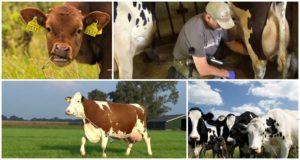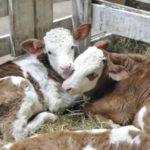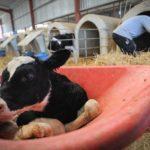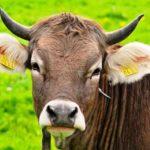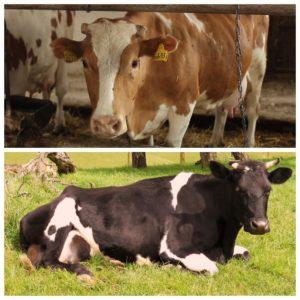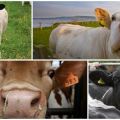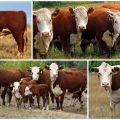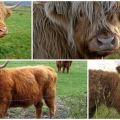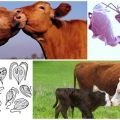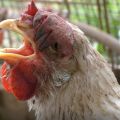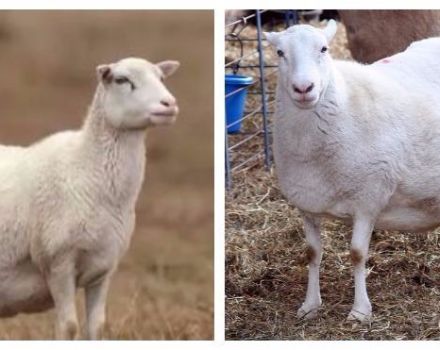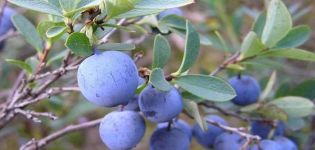Causes of cough in a calf and how to treat it at home
Cough is a common symptom that speaks of infectious, colds, or bacterial diseases in animals. Cows of any age can get sick, but coughing is common in young calves up to 5 months of age. Consider why a calf coughs, how to treat it, how to diagnose diseases correctly, how to help an animal at home.
The main causes of cough
A cough most often signals a cold or respiratory infection. Humidity, cold in the barn, drafts, dusty, dirty litter contribute to this. Calf disease can be caused by a weakened immune system due to improper conditions and poor feeding. Deterioration of the protective function can cause stress due to weaning from the mother, transportation to another farm, eating unusual foods, and insufficient physical activity.
What other accompanying symptoms can be
Cough in cows is accompanied by discharge from the nose and eyes, shortness of breath. The animal breathes heavily, with a strong development of the disease - wheezing. His temperature rises, the calf refuses to feed, lies down, moves a little.
Diagnosing the problem
A symptom such as a cough alone cannot determine what caused it. If the cough does not go away on its own and the situation worsens, you will need the help of a veterinarian. Before visiting him, you need to isolate the bull or heifer from the herd.
The diagnosis is made on the basis of clinical symptoms and laboratory tests of blood tests, nasal discharge, as well as on the basis of data from a pulmonary biopsy and X-ray. It is impossible to treat calves or adult cows for cough on their own. Often this does not end with the animal's recovery, but with even greater harm to it.
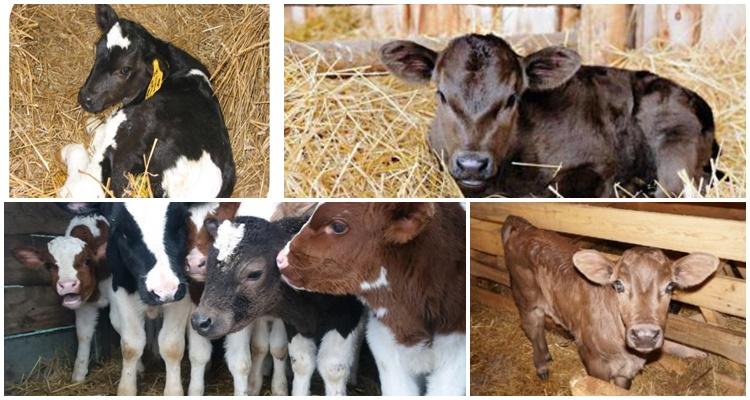
Treatment methods
The therapy, the drugs used will differ depending on the diagnosis, because a cough can cause various diseases that are not related to each other.
Bronchitis
Calves and cows get sick with bronchitis, which are forced to live in premises with non-compliance with hygiene standards, where it is cold and humid in winter, there are sharp temperature changes. Animals drink cold water, breathe air in which ammonia is dissolved, dust is present. Bronchitis in cows can be acute and chronic. The disease can be in the following forms: fibrous, catarrhal, purulent, hemorrhagic.
Cough with bronchitis in cattle is at first dry, prolonged, then becomes moist and deaf. May be accompanied by wheezing. With timely treatment, the disease can be eliminated in 1-1.5 weeks without complications and consequences.
Disease therapy begins with the isolation of a sick cow in a separate room.It should be warm, dry and ventilated at a constant temperature. You need to feed the animal with fresh grass or not dusty hay.
Medicines required for treatment: expectorant and antimicrobial drugs for a course of about 5-7 days.
The remedies are given with liquid food. In the chronic form of the disease, the calf is injected with medicines that expand the bronchi, inhalation with eucalyptus oil, menthol is done. They also connect folk remedies: rub the calf's chest with turpentine, warm it up with a lamp, give decoctions of thyme, mother-and-stepmother, licorice.
Pneumonia
Pneumonia is a common cause of coughing. At home, dairy calves usually get sick, in late autumn and winter. As with bronchitis, pneumonia is caused by cold, dampness, moisture, and drafts. In the warm season, pneumonia occurs against the background of a cold after overheating and subsequent hypothermia. Also, the disease develops if the feed is poor in retinol and calciferol.
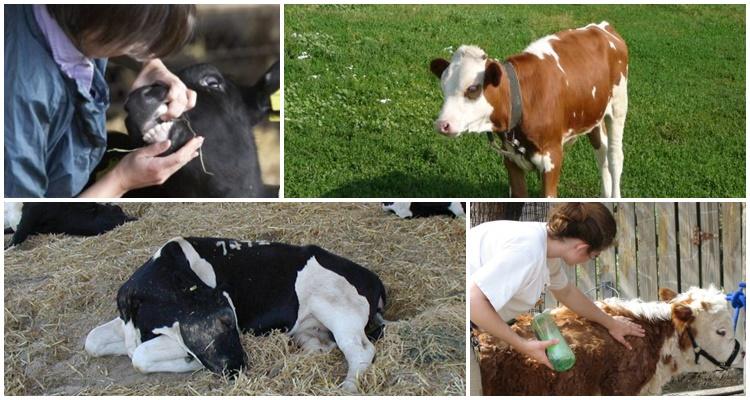
In addition to coughing, inflammation can be determined by increased breathing, runny nose, nasal discharge, and increased temperature. The calf is depressed, the animal lies, eats little. Treatment consists in giving antibiotics of the tetracycline series and from the group of aminoglycosides, vitamin agents to maintain immunity. You can fight inflammation with novocaine blockade. To completely cure the disease, an integrated approach is required; therapy can take a long time.
Dictyocaulosis
The disease is of a parasitic nature, the causative agent is nematodes parasitizing in the bronchi and lungs of cattle. Parasites are transmitted from sick animals to healthy ones by eating food or drinking water contaminated with secretions. Most infections occur during the summer months.
Symptoms of dictyocaulosis in cattle: cough, rapid breathing, wheezing, nasal discharge, foam at the mouth, diarrhea. The calf is depressed, refuses to eat, fever is noted.
Diagnosis is by analysis of feces and nasal discharge. Treatment: taking antibiotics of various classes, specially designed to eradicate the disease: "Ivomeka", "Fenbendazole", "Nilverma". You can help the calf by injecting a warm mixture of crystalline iodine and potassium iodide in a ratio of 1 to 1.5. The mixture is diluted with distilled water at 1500 to 1.
Folk remedies will not be able to help in this situation, it is not worth hoping that you can cure the calf on your own. If you suspect dictyocaulosis, you need to contact a veterinarian as soon as possible. After a course of medication, the calf should be quarantined before being released into the herd.
Tuberculosis
Like humans, cows can get sick with tuberculosis. Sources of pathogens are sick animals; bacilli are transmitted to healthy individuals by contact with sick animals, and calves through milk. Symptoms: cough, shortness of breath, wheezing.
The diagnosis is made on the basis of tuberculin test data. Therapy is not carried out, treatment with drugs is considered ineffective, sick animals are subject to culling. The premises where sick individuals lived are cleaned and disinfected. New cattle are first kept in quarantine, then transferred to the general herd. Prevention of tuberculosis - vaccination of young calves.
Preventive actions
Since the cause of diseases, the symptom of which is coughing, is non-observance of hygienic standards for keeping livestock, the owner is to blame for the incidence of sickness in cows. To prevent the cattle from becoming infected and not sick, you need to keep them in clean stalls, monitor the humidity and temperature of the room, especially in autumn, winter and early spring.
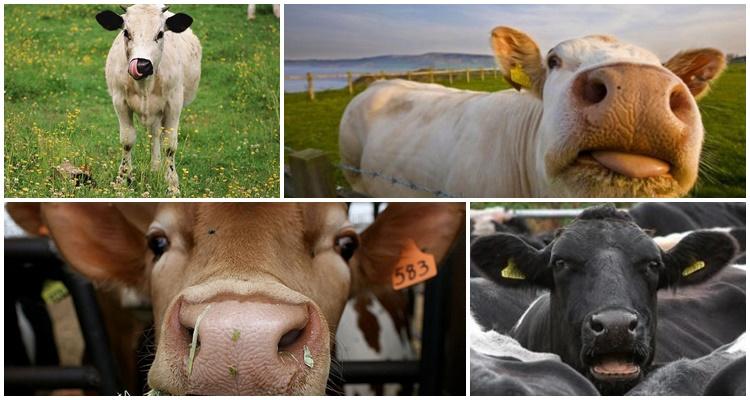
You need to feed animals with fodder, the nutrients of which could fully provide livestock with the necessary components.Cows should always have clean fresh water readily available. When calves are born, care should be taken to ensure that they drink colostrum, which will help the animals activate the immune system. Babies should receive at least 7 liters of milk per day. Milk from sick queens after milking is unsuitable for drinking; it can be given only after boiling. When the kids grow up - vaccinate against common diseases.
If cows are kept in stalls, they should go out for a walk every day, but it is better to have the cattle spend the day in pasture. This has a beneficial effect not only on the physical, but also on the mental state of animals.
Cough is a symptom of diseases of the respiratory system, which must be detected in time. If the disease is detected in the initial stage and the animal is treated, recovery occurs in most cases. If the problem is ignored, the whole herd can become infected, and then all the livestock will have to be treated.
The danger can threaten not only cows and calves, but also people working in the barn. Animals can be infected with tuberculosis. Preventive measures allow you to avoid diseases, reduce the cost of drugs and the time spent on treatment. Animals with strong immunity rarely get sick. If precautions are taken, you do not have to worry about how you will need to treat your charges.



